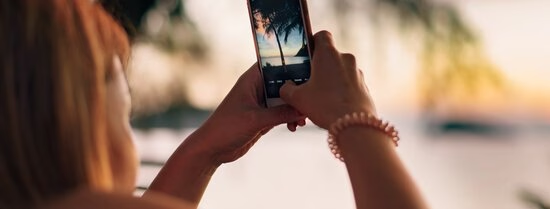Adolescents spend a significant part of their day online, whether playing games, accessing and uploading content, or communicating with their friends (Jansz et al., 2015; Schols et al., 2011; Sonck & De Haan, 2015). Some warn that this high Internet use may result in detached relationships and a fragmented society (cf. Turkle, 2011). During their everyday online activities, adolescents may encounter harmful content and negative experiences (Livingstone et al., 2011). However, most of the time, they use the Internet successfully for their own benefit and entertainment. Despite these positive outcomes, the negative consequences of adolescents’ Internet use seem to dominate both popular and, to a lesser extent, academic discourse. This dissertation aims to shed light on the balance between the positive and negative outcomes of adolescents’ everyday Internet use by empirically investigating how it is related to social cohesion. Accordingly, the main research question in this dissertation is: How is the everyday Internet use of Dutch adolescents related to social cohesion?
The opportunities that the Internet gives adolescents, and the extent to which they actually seize them, provide an interesting tension, which gives rise to questions about why adolescents differ in their offline and online social and societal engagement. Adolescents especially use the Internet to connect with their social network everywhere and at any time, and to engage in activities that promote social inclusion in peer groups. From the perspective of educators and governments, the Internet may afford adolescents to participate in the wider society. However, adolescents appear little interested in online cultural and political activities. Consequently, the three dimensions of social cohesion that have been scrutinized in this thesis to investigate how adolescents’ Internet use is related to social cohesion are: social networks and social capital, adolescents’ social inclusion, and their participation in society. Since their Internet use is not the only influencing factor, other aspects also have to be taken into account. As a result, the following sub-questions were formulated:
- How is the everyday Internet use of adolescents related to their social networks, social inclusion and participation in society?
- To what extent are differences in Internet use and skills among adolescents related to their online participation and social relationships?
- Which factors other than Internet use are relevant in explaining differences in social cohesion among adolescents?
In the first two studies of this dissertation, the question how adolescents’ Internet use is related to their social networks and social inclusion was investigated by focusing on the relationships with their most important social ties: their parents and their peers. The third and fourth studies explored adolescents’ online engagement in society by examining their online cultural and political participation.
Research team
Dr. Marjon Schols
PhD Candidate (completed)
Prof. dr. Jos de Haan
Promotor
Prof. dr. Jeroen Jansz
Promotor
Prof. dr. Valerie Frissen
Promotor
Publications
- Schols, M.H. (2015, October 29). Young, online and connected. Erasmus University Rotterdam. Retrieved from http://hdl.handle.net/1765/78734
- Schols, M. & J. Jansz (2014). Determinants of youth online political participation in the Netherlands. Paper presented at ICA 2014 Annual Conference, 22-26 may 2014, Seattle.
- Schols, M., J. de Haan & J. Jansz (2013). Teenagers' Internet use and the relationship with their parents. Paper presented at ICA 2013 Annual Conference, 17-21 June 2013, London.
- Schols, M., J. de Haan & J. Jansz (2012). Teenagers’ Internet use and the relation with their parents: A resource theory approach. Paper presented at ECREA conference 2012, 24-27 October 2012 in Istanbul.
- Schols, M. & J. de Haan (2011). Tieners@cultuur: online communicatie van schoolgaande tieners over cultuur. Paper presented at Etmaal van de Communicatiewetenschap 2012, 8-9 February 2012, Leuven.
Research completed
This PhD research was successfully defended on 29 October, 2015. View the dissertation.
